What is The Evidence Files?
I started the Evidence Files as a sort of journey of exploration into the great many subjects of intrigue in this existence of ours. For me, writing provides a way to organize jumbled thoughts. It functions like a college curriculum, carving complex topics into manageable sections enabling easier, more efficient understanding.
Rather than simply squirreling away what I learned into a private journal, I opted to launch it here on a public site. I thought, why not invite others to sample the various things I found interesting, while sparing readers some of the work involved with researching and parsing out the details?
Writing on a variety of topics goes against the advice of—well—just about everyone who talks about growing an audience. People, these advisors say, tend to stick to narrow subject matter and thus do not regularly subscribe to platforms—written ones, anyway—that meander across a whole range of matters. Perhaps they are generally correct. And if so, that is fine as I never intended or expected to gain an audience beyond a handful of people I know rather well.
Yet now, more than a year after I started, I do have an audience, one spanning 20+ countries on five continents, with hundreds of subscribers, and thousands more who read my posts regularly. Thanks to you all!
This development blows my mind in many ways. After all, I spent much of the last decade living like Oz behind the curtain, as my lovely future-wife characterized it. I put every ounce of effort and intellect into my work, and [I believe] I produced exemplary results. But I did that with a low profile, known to my professional colleagues and few else, and I certainly did not expect any form of reward or recognition from anyone. (For the record, I still do not expect any sort of reward or congratulations for me or my work to this day, but my coworkers kindly offered plenty of unsolicited compliments in those days, for which I remain eternally grateful.)
In my current incarnation, however, the curtain has been ripped away such that many people, so many of them total or partial strangers, read my words. Few comment on the website or social media, but more than I ever anticipated do send me a comment by email. It all remains a rather surreal experience.
Nevertheless, I must confess to one thing. Despite the size and diversity of my audience, I do not take either of those metrics into consideration when choosing a topic or forming any opinion I may have about it. The parameters for determining how and what I write are simple: does it interest me, is there sufficient information (evidence) about it, and can I somehow add to the intellectual aether of society?
Once I make those determinations and am inspired to write, I then think very much about the audience. For example, can I convey the information in a clear, effective manner? Can I support my position with evidence, facts, and logic? On the latter question, you will see that all of my articles contain numerous underlined words or phrases, which indicate underlying links to the source material. And lastly, though I am not certain as to whether I am all that good at it: can I express why something is interesting in an entertaining or inspiring way?
On the last question, I often wonder about my skills in inspiring others partly because I am constantly surprised by the various articles that do extraordinarily well compared to those that meet just the usual numbers of readers. I never tried before, and certainly won’t now, to decide the topics by what I think readers will like.
For one, based on my routine bewilderment by the things that go “viral” among my readership, it would be a fool’s quest to try to pander. From an analytics viewpoint, these spikes follow no topical, chronological, or other readily identifiable trend. For example, my highest read articles so far include diverse topics such as AI Regulation and Venture Capitalist nonsense, the Street Dogs of Kathmandu, Nepal’s Health Crisis, the US Speaker of the House’s weird Porn-tracking app, the Michigan election coup attempt, and the case for why Elon Musk is an inveterate fraud, among others.
Secondly, my passion about the subject is as important as my ability to find adequate research materials on it. If I am not wholly intrigued, neither will you be. Writing specifically for someone else simply wouldn’t work.
Finally, part of my motivation is to kindle interest in people about things they may know little or nothing about. This includes random or unusual items, but also “stories of the day.” So many outlets present contemporary hot topics in a rote way, predictably portrayed in line with the known leanings of their audiences. Yet, most of these stories have intrinsic curiosities, much of which is lost in mainstream or routine reporting.
I find value in eliding the chaff that too often obfuscates the real—and often more fascinating (or honest)—story beneath the veneer of clickbait reporting. It’s why I wrote, for example, a prosecution-styled-memo on the Michigan election conspiracy or a discussion of Donald Trump’s effort to solicit a bribe.
In any event, I post on this site as much to explore my own interests as I do to open doors for others to the weird, irritating, horrible, wonderful, and fascinating things my mind can’t help but tumble over. Below, I provide some context into the reasons for which I have chosen the rather diverse categories you see on my homepage.
But before I dive into that, I do ask you to share if you know anyone who might be interested in my work—every letter or video bit of content is free. Like or comment on an article. Or you can direct people to the Evidence Files Facebook. My motivation for growing my audience is engagement—enabling the start of a vibrant exchange on these topics with people who know a lot about them or wish to know more about them, especially people from varying cultures, places, and professional experiences. That dialogue is by far the most exciting part of doing this, even if it is occasionally adversarial.
As the Evidence Files Substack is geared toward education, I generally try to limit any strictly political content. Some interweave with crime or tech, making them inherently educational. I also think it is important to elucidate legislation and other subjects relevant to the pending election in the United States. But to avoid being overly enmeshed in that subject area, I started a separate page over on Medium. There, I delve into politics, law, and history, as well as science and math.
Back here on Substack, I have collaborated on several articles now and wish to continue to do so in the future. It is quite enriching to elucidate ideas that come from two (or more) different minds and experiential histories. Not to mention, the numbers also suggest that people find such collaborative articles quite compelling.
I have so far co-written with Bishal Aryal—a cybersecurity engineer in Nepal; Tammy Conti—a professional dog trainer in New York State; Khem Lakai—a president of a hospitality college in Nepal; Ganesh Bhusal—a cybersecurity instructor in Nepal; and Murari Jha and Suraj Raj Yadev—both cybersecurity students in Nepal. If you wish to propose a topic—to research or co-write, to discuss, or simply to satisfy your own entertainment or interest—please direct message me using any of my social media listed at the end of this article, or leave a comment below.
And now, the content.
History
A little more than a decade ago, I completed a Juris Doctor and a Master degree in history. My goal back then was to become a professor of history, politics, and culture of central and south Asia. Alas, life happened, leading me along a different path for some time.
Nonetheless, some things are cyclical and it seems I have circled back to that early path. Now, I am a newly minted member of the Dharma Farm School of Buddhist Philosophy and Translation. I teach history classes on Tibetan history and politics, and I also cover subject matter involving environmental issues in the Himalayas and Tibetan plateau.
Having finally returned to my roots, my Substack will feature articles on the history of China, Tibet, Nepal and other parts of the region. I am especially excited by this as the history of such a huge part of the world is not widely taught in the West. Yet, it contains some of the most fascinating stories. As an introduction, I wrote a brief account of the lives of the first three Dalai Lamas.
Tech, Aviation, & Science
Aviation fascinates me for many reasons, not the least of which is I hope one day to regularly pilot a small plane for some beneficial purpose, maybe as an aerial animal rescue or human critical care transport. From an academic standpoint, the aviation industry showcases one of the most innovative and responsive tech fields in history, though with hiccups here and there.
Consider that the inaugural commercial flight took place just about 110 years ago. Planes first flew in large numbers as weapons of war in the first World War (1914 - 1918), and the commercial aviation industry morphed into something akin to what we recognize now in the decade following the second great war (ca. 1950s).
Moving forward another 70 years, massive airliners like the Boeing triple 7 can fly and land themselves. Commercial crashes occur with such low frequency that, statistically, a traveler could fly daily for some 10,000 years without ever becoming involved in a fatal incident. This is because nearly every single accident has led to positive alterations in the way pilots or planes operate or airlines train.
People throw around crash numbers so often that I think sometimes the gravity is lost. The act of flying stymied human inventors for thousands of years despite some of the greatest minds in history mulling it over, yet in just a single century we have developed aircraft that can carry millions of pounds and passengers skyward, with vanishingly few major accidents. This astounds me—and serves as a model for other technology-driven industries.
Your author entering pilot training (2021).
If aviation fascinates you as much as me, check out these incredibly informative YouTube channels: Mentour Pilot; 74 Gear; Green Dot Aviation; the Flight Channel.
Technological and scientific innovation in other fields, too, has been miraculous over the last century, yet sometimes we forget by how much. Remember that bacterial infections remained among the top killers of humans into the 20th century!
In the late 1800s, Paul Ehrlich, a German physician, first realized that some bacteria could be selectively killed without harming beneficial cells. But it wasn’t until 1928 that Alexander Fleming purposefully began growing fungus to target such harmful bacteria. And it took some time after that before antibiotics—as they came to be called—emerged into widespread use.
In addition to discussing some of these spectacular achievements, I try to give special attention to those who history conveniently forgot, often because they did not “look” like a proper scientist or mathematician in their time. This is why I have introduced such brilliant minds as Alice Ball and Genevieve Grotjan Feinstein.
In 1969, humans first set foot on the moon, an astonishing feat to be sure. Yet, the iPhone 6, launched in 2014, could perform 3.36 billion instructions per second—120,000,000 times faster than the computers running the Apollo mission 45 years before. Quantum computers—though still presently experimental—may one day exceed even the current iPhone’s speed by countless orders of magnitude.
As a person deeply involved in computing related technology, I believe it is important to articulate how technology people use everyday actually works, and what dangers are associated with it, thus my articles on topics like QR codes, password strength, and the Psychology of Email Attacks. Sometimes, I write toward the more technologically-sophisticated crowds, exploring intermediate to advanced topics like obfuscated computer code. And sometimes, even basic tech provides a truly amazing story, like in the case of Voyager 1.
I also write about tech with an eye toward its abuse. In some cases, this involves bad actors exploiting new tech to commit the same old crimes, like I explained in my piece on Apple AirTags. More often, though, I write on the abuse of tech in the name of commerce.
Big companies and venture capitalists continuously promote and distribute half-developed technologies with no concern for their impact on society. I’ve discussed this in the context of what these folks call “Artificial Intelligence,” encapsulated in the perniciously premature rolling out of Large Language Models. Part of exploring this abuse is calling out the disingenuous glorifications “big tech bros” like Marc Andreessen or Elon Musk spew in an attempt to pull the wool over the eyes of an enamored public. Or to highlight companies perverting technological advances to sell the privacy rights of their customers right out from underneath them.
Environment and Sustainability
Aside from some topics that sort of interweave between Science and Tech, I spend a lot of time researching, writing, working, and educating on environmental issues. My non-profit lives directly in the middle of this field, thus I have strong feelings and deep concerns about it. Climate change has confoundedly emerged into the political realm as a partisan issue. I am here to tell you—it is not. At this point, parroting certain punditry talking points reveals nothing more than emotional or partisan-driven ignorance.
While I hold deep contempt for the crowd that profits in one way or another from selling this schtick (i.e., politicians, fossil fuel companies, and a variety of influencer buffoons), I continue to lose patience with regular people who obediently repeat it. To curb my impatience, I endeavor to lay out the facts and signs as clearly and concisely as possible, putting the vast canon of research into laymen’s terms. Sometimes, I even have the opportunity to let the scientists themselves explain it.
In other cases, people who live in the most swiftly changing parts of the world share their own experiences, such as Kami Rita Sherpa, who has been to the top of Mount Everest more times than anyone alive and knows the effects of climate change up there better than anyone.
Photo provided to me by Kami Rita himself.
In an attempt to avoid an overly curmudgeonly approach, I started my series on sustainability. That series, though small as of now (just three articles), focuses on people actively working to educate others by showing not telling how to conduct business and engage in activities with environmental preservation in mind. It remains a small series for now because these articles only include my personal engagements with the people I present, and are among my favorite to write.
Thematically similar, but approached more academically, I also discuss various other efforts aimed at improving the way we treat the surrounding world, such as in my article on snow leopard conservation or the one on caring for pets in natural disasters. And sometimes, I just analyze sciencey things that are randomly cool, like the ‘Oumuamua interstellar object.
Nepal
For some, this might seem like an outlying category. It makes a bit more sense once the reader understands that not only do I currently live and work in Nepal, but I also have been coming to this wonderful country for almost 15 years. Uniquely situated between the mighty Himalayas and the scorching Tarai, Nepal offers a landscape incomparable to any other place on earth. To live and work here, in this culturally rich, vibrant atmosphere is an honor that few non-Nepalis I know will ever experience. Cherishing that experience as I do, I feel duty-bound to share various features of it.
I also strongly believe Nepal sits at a unique juncture related to technology. I discussed this in some detail previously, but every day I am there—teaching the newest minds to enter the field, and working with those already immersed—the vision of Nepal as the world’s next tech hub only grows more vivid. Stemming the brain drain in Nepal is especially important and I only hope that I can play some part in that, however small. Toward that end, I also write as often as possible on tech issues with a mind toward helping new students or those about to enter the job market.
On a last note related to Nepal, I have partnered with one of the most compassionate and intelligent people I know on another project of enormous implications. Stay tuned here for more information on that project as it develops.
Law, Crime, and Commentary
What’s happened in the world in the past two decades, but in my home country (the USA) especially, is egregious. Large factions wish to return the world to the Dark Ages—or at least some feudal-like system—and through invoking fear and ignorance they are succeeding with convincing an uncomfortably large lot of people of the validity of their malicious, ignorant, destructive views.
In the United States, corruption has been endemic since 2016, plummeting to an extraordinary moral low during the Trump administration, only to inch back ever so slightly since. That environment of moral degradation and governmental anarchy sowed confusion and resistance to common-sense measures among the American population during the pandemic, leading to the nation enduring one of the highest per-capita death rates among resource-rich countries, a trend that tragically continues. More ridiculously, the deaths and severity of illness have—and likely will continue to—trend along political party lines. I do not hesitate to say how mind-bendingly stupid that is.
Following that and numerous other disasters during that political term, it seemed the American people had suffered enough. In 2020, they elected someone else to steer the ship—someone who himself can barely garner favorable polls despite an extremely strong track record of legislative victories since his occupying the office.
Unwilling to bow out and go peacefully home, Trump led a very large cadre of party members at all levels of the political ranks into a vast conspiracy to take power by fraud or by force. Part of the methodology involved the party-wide dissemination of lies about everything and anything that would provoke emotionally-driven reactions among the electorate. It resulted in an incredible—and continuing—spike in political violence culminating in a crescendo of hysterical savagery manifested in the events of January 6, 2021.
Since that date, the conspiracy has continued even while thousands of indictments have been issued, and prison sentences imposed. And although serving justice is the correct response to such villainy, however vacuously driven that villainy has been, the dragnet remains woefully inadequate in scooping up all its perpetrators.
What’s even more ruinous than all of that, if such a thing is possible, is that the techniques employed by this party of charlatans and fearmongers have awakened the deepest, most visceral instincts of a chunk of the American electorate suffering from a lack of education, awareness, or critical thinking. Racist, sexist, and other bigoted attitudes have been on the rise, leading to such a dangerous growth of violence against select groups of people that some national and international groups have labelled the United States a “backsliding democracy,” with parts of the country approaching mini failed states.
This associated violence has been cultivated and fostered by politicians who quite literally call for it. Some invoke tropes about secession or even civil war. While most of the people calling for violence—Mike Huckabee, Matt Gaetz, Andy Biggs and their like-minded ilk—are abject cowards and fools, their words remain a clarion call to their imbecilic foot soldiers.
Armed with the twisted interpretation of their supposed unfettered right to carry weapons of death, if even just a few fail to ‘stand back and stand by’ more innocent people will get hurt or killed. That many of these potential criminals have grouped together into faux militias is what prompted national security organizations to classify them as the “gravest and most persistent threats that we as a country face.”
Many Americans glob onto this kind of extreme rhetoric gleefully, deftly distracted by the antics of these snake-oil-selling political clowns who simultaneously slip their hands into their constituents’ pockets and rob them blind. Those who self-righteously boycotted their own poison routinely fail to notice their representatives openly calling to cut the very services upon which they or their parents rely to live.
They squawk about immigrants—though few have ever met more than one or a couple—while their political representatives’ overlords steal their wages from their already pitifully low-paying jobs. After a healthy dose of propaganda TV, somehow millions of Americans cared more about a representative’s clothing than they did about another economically devastating government shutdown. Nor do they seem to care about the festering corruption of their judicial system that starts from the top down.
All the slight-of-hand by this faction of Tammany Hall progeny, bolstered by a shamefully effective movement to torpedo education, helps promote the idiocy that spells the end of the country’s reign as the “shining city on the hill.” I put that phrase in quotes to reflect a certain cynicism; as one of my non-American friends keenly observed, “America is good at a lot of things, but it has been great at branding itself.” Skeletons in the closet of the country notwithstanding, rather than engage in studious introspection, far too many are simply high on their own supply:
waving freedom flags while demanding the oppression of other people’s rights;
complaining about wages, while decrying unions who fight for fair wages;
crying about crime, while calling for the defunding of law enforcement;
screaming about the second amendment, while children die more from gun violence than accident or illness;
parroting climate denialists, while floods and fires obliterate their possessions;
The hypocrisy goes on and on. It is embarrassing, and intellectually and morally bankrupt. But I digress…
My Law and Crime and Commentary sections address these kinds of foolishness, but from a carefully crafted, evidence-based perspective. I am unabashedly contemptuous of anyone who threatens violence, lies, is corrupt, or acts like an utter fool, irrespective of their political affiliations. If those affiliations seemingly tilt heavily in a certain direction in my writing, that says a lot more about them than me.
When discussing political scandals, I follow the evidence. If the publicly available evidence doesn’t exist, then I don’t proffer a strong opinion about it—except maybe to point out that indeed the evidence simply doesn’t exist in spite of the conclusions publicly trumpeted.
I choose topics like these partly because I like a good crime story (from a writing and entertainment point of view). What makes a true crime story interesting is being able to know what happened, how, and why. For this, there needs to be evidence to examine. My extensive experience in this area, cultivated through my involvement in numerous criminal investigations of all different crimes over the years, guides me toward finding an evidence-supported truth (insofar as “truth” can exist).
Trained as a lawyer and experienced as an investigator, on law and crime topics I write in a similar way that I used to write memos about actual cases I worked on in law enforcement. If someone doesn’t like or agree with my conclusions, I encourage them to offer an evidence-based defense. That exchange represents the core functioning of a civilized society, the rest is simply urinating upwind.
I grew up naïve and prone to emotional outburst. That is a symptom of youth. But I would argue that the purpose of life is growth: examining and learning from mistakes, and proceeding with a more flexible mind. In this stage of life, what some might call middle-aged, my world views are simple:
Proceed on facts, evidence, and logic.
Where those fall short, withhold strongly held opinions until further information is available. Search for that information, if necessary. (I try to carefully evaluate the “information” I find—it’s not supposed to be an exercise in finding someone who says something I want to agree with.)
When new evidence arises contradicting a held belief, alter that belief in accordance with the new evidence.
Start from a position of understanding, not reaction—even for enemies.
Beliefs have no more value than opinions, if either of the first three points are ignored.
Lastly, if a strongly held belief/opinion would change based on the face, political party, nationality, gender, or other category of the person it is held toward, we are doing it all wrong.
Thanks for joining me here, however you arrived. And a special thanks to my subscribers and commenters. Engaging in one of these ways suggests that you value my work… and have even agreed to receive an email from me occasionally advising you that I have released new material! For that, I am grateful.
I am the executive director of the EALS Global Foundation. If you like my work, you can also follow me at the Evidence Files Medium page for an exploration of law, politics, history, and social issues; or Buy me a Coffee as a small show of support.




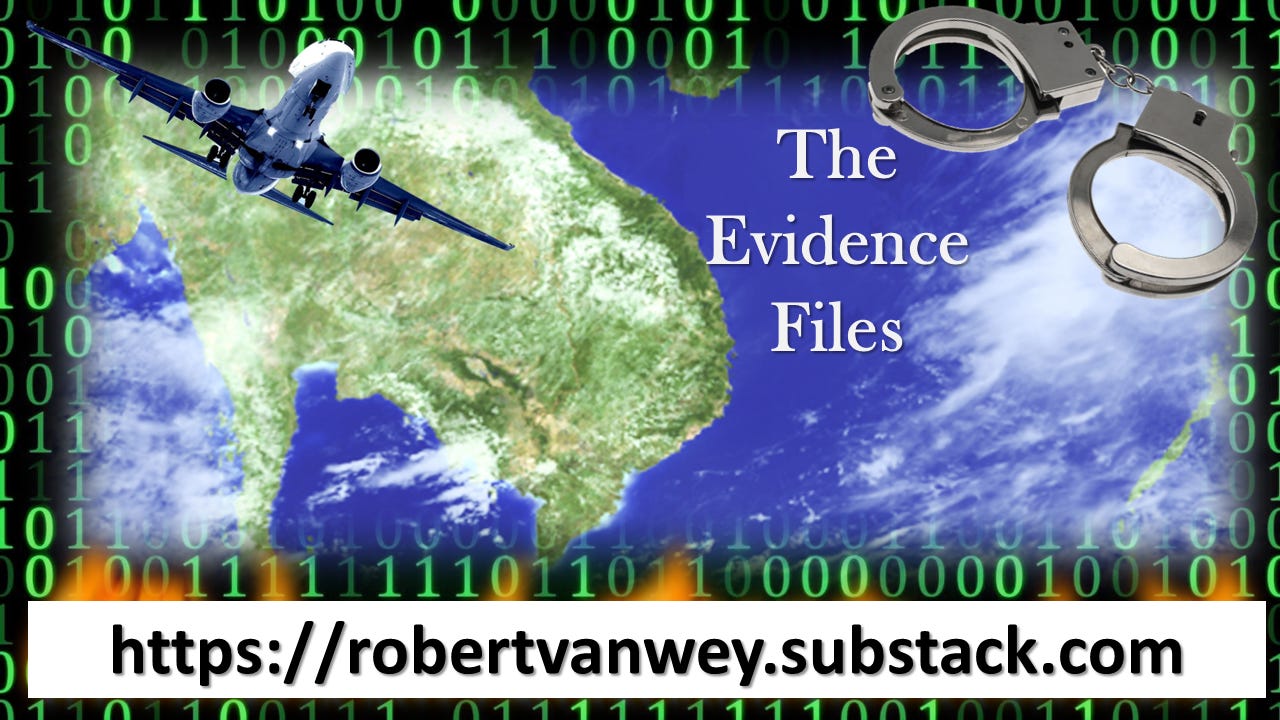





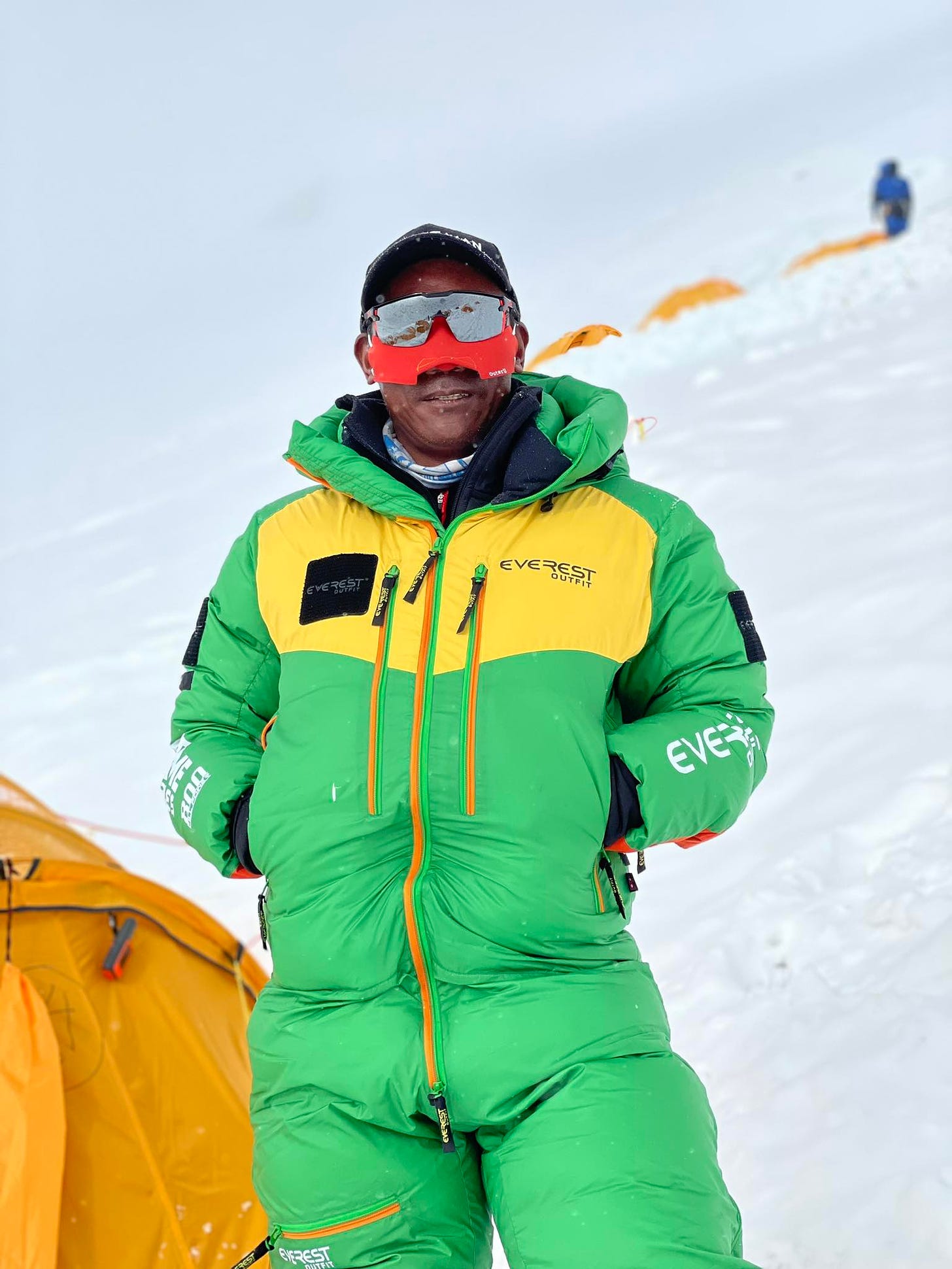

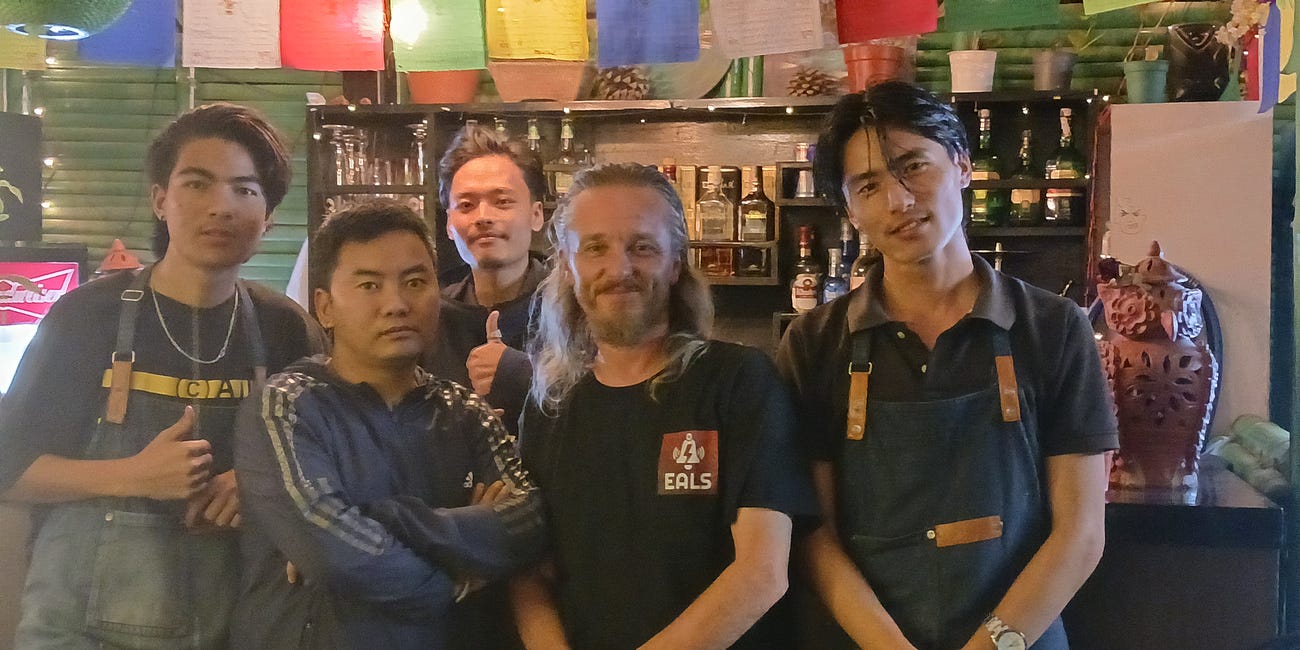

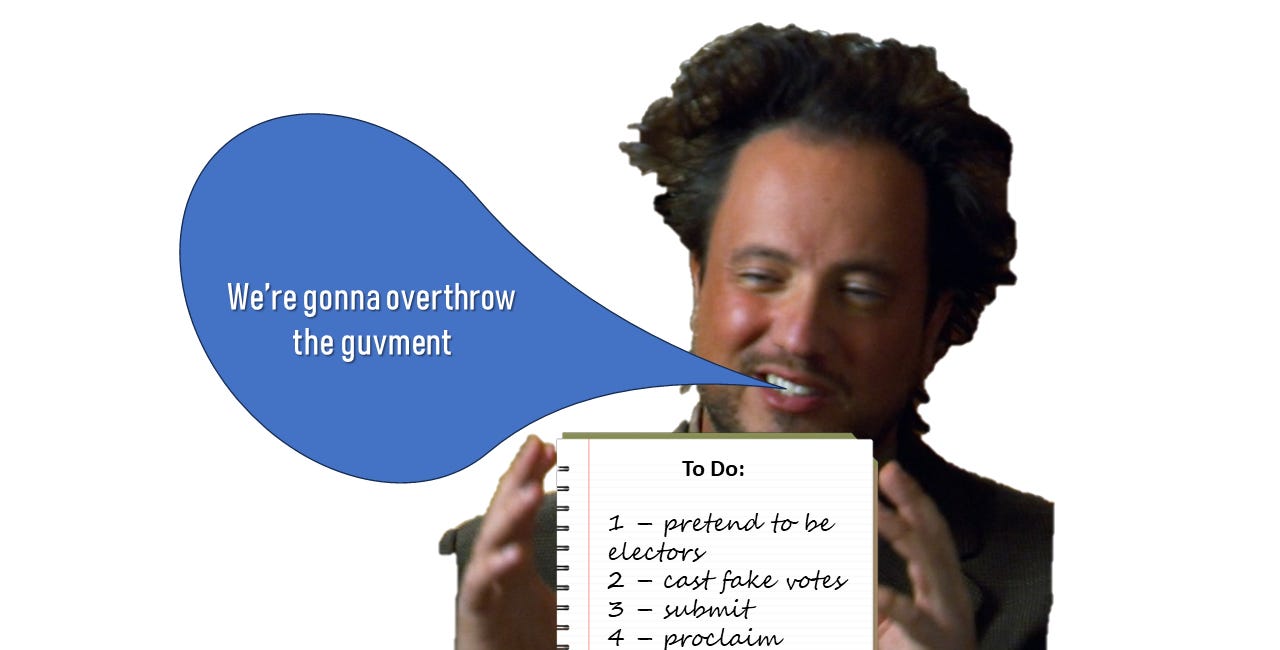


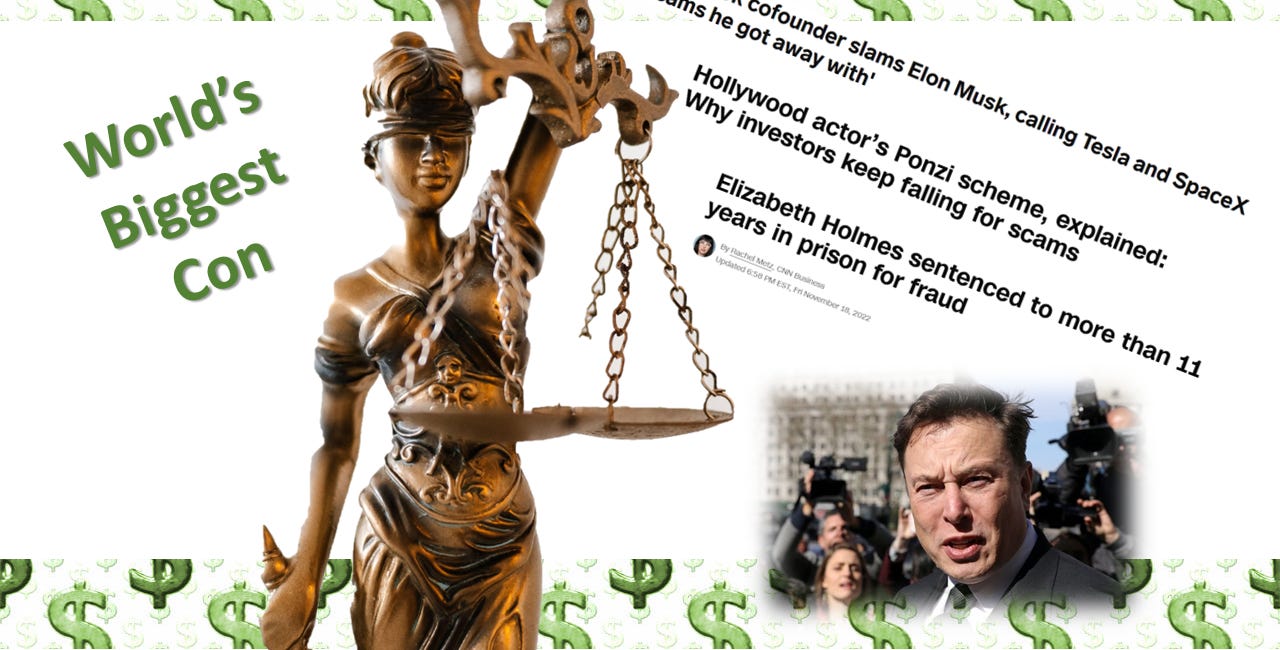

You absolutely are truthful and honest about yourself.. glad we are great friends and it's an honor to read this article knowing you for many years . Looking forward to your next articles and your upcoming podcast. Ten star rating.
⭐⭐⭐⭐⭐⭐⭐⭐⭐⭐